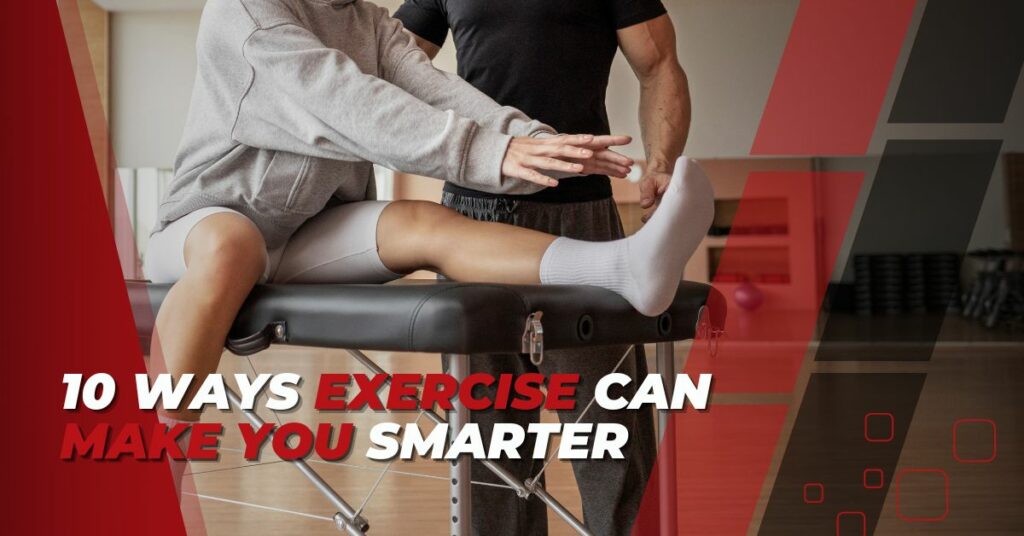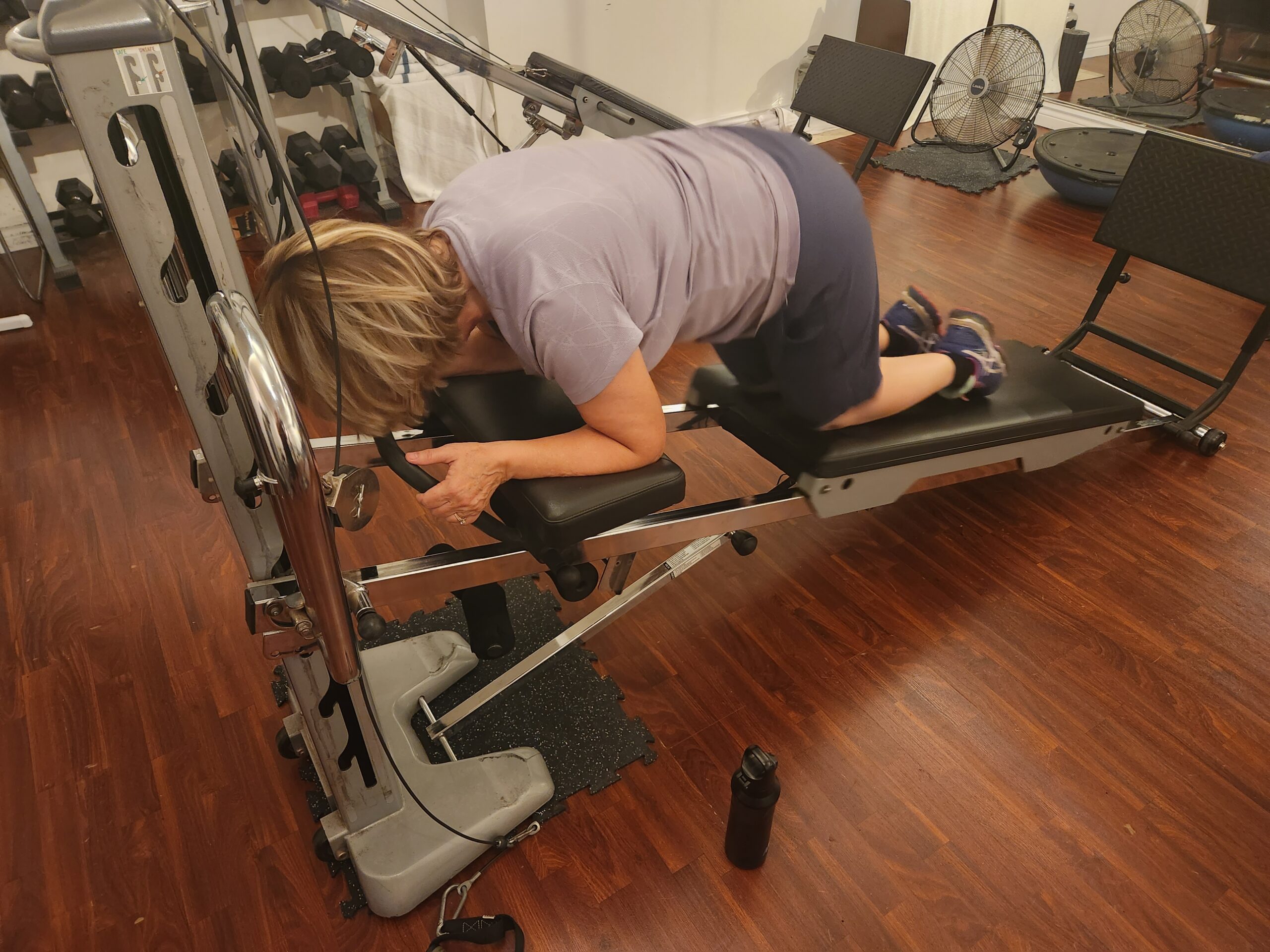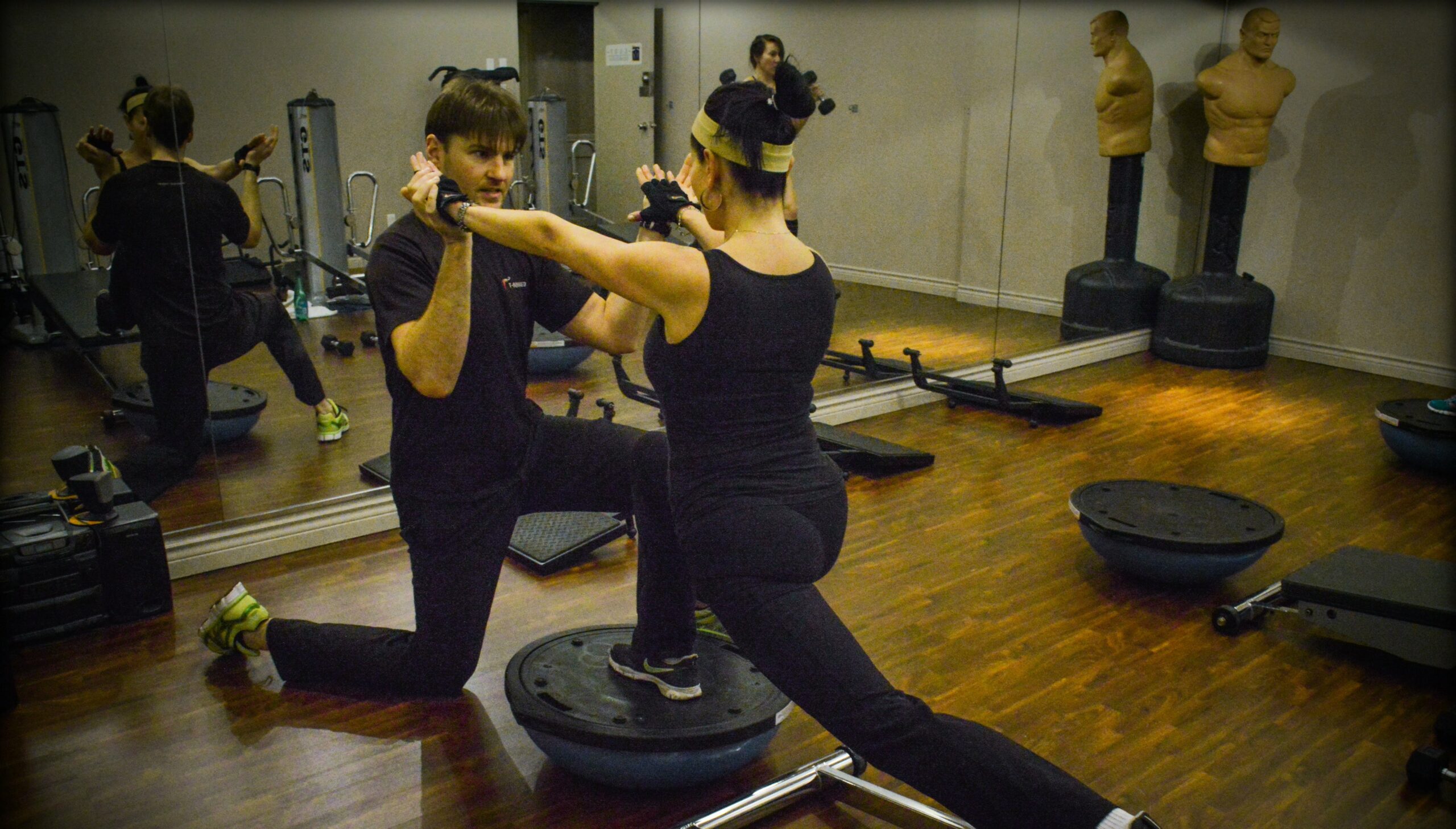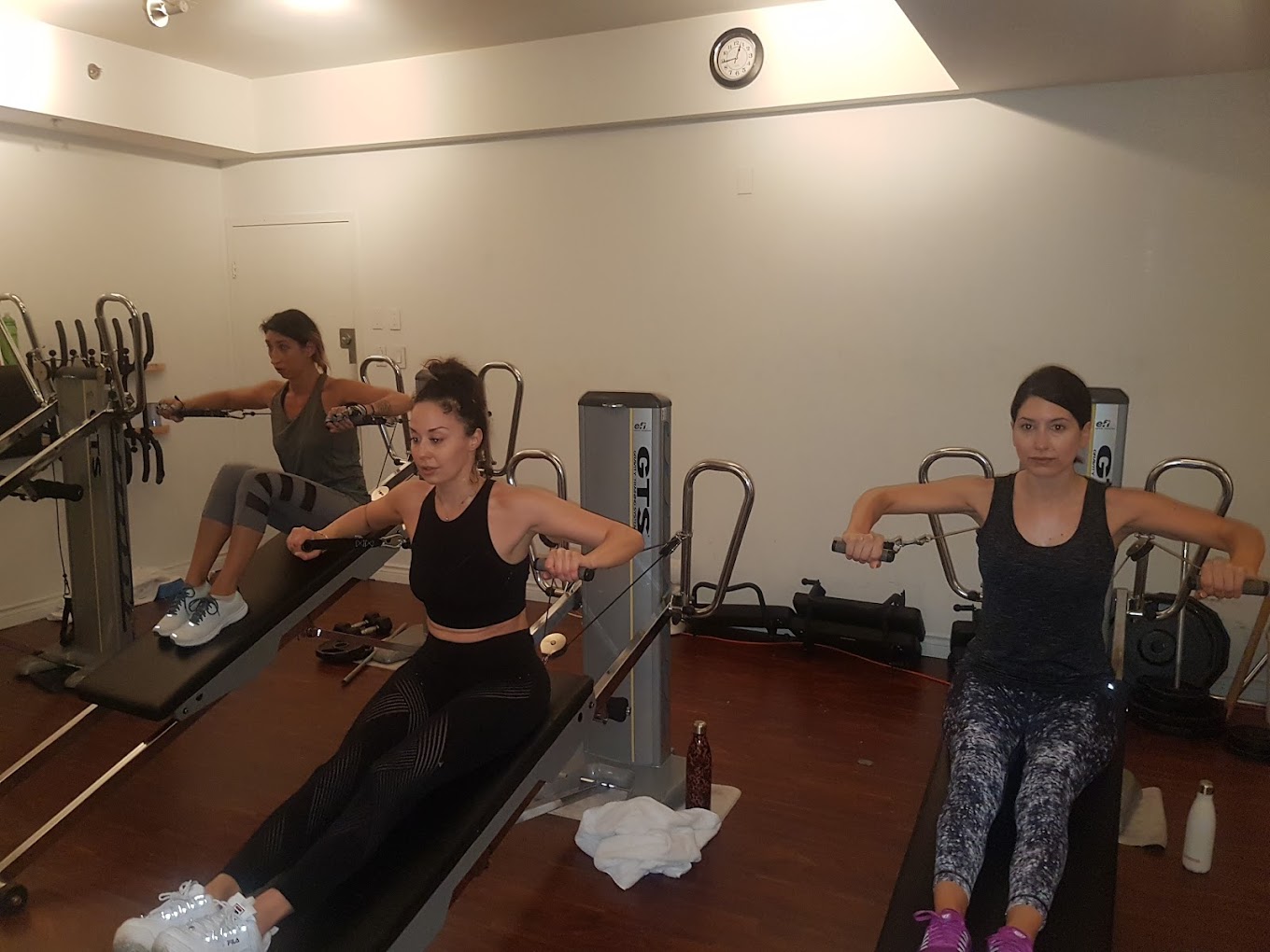
10 Ways Exercise Can Make You Smarter – T Squared
Ever find yourself stuck in a mental fog, drowning in a sea of deadlines and responsibilities? Yeah, you’re not alone.
A staggering 44% of employees worldwide reported experiencing a lot of stress just yesterday, according to the State of the Global Workplace: 2023 Report. That’s two years running of record-high stress levels.
What if we told you that exercise—yes, the thing you usually reserve for weekends or never—can be your secret weapon not just to survive but to thrive in the chaos?
The reality is exercise can make you smarter, and it’s not just gym folklore. Recent research by the University of British Columbia discovered that just six minutes of vigorous exercise could significantly boost brain function.
Now, imagine being able to focus with laser precision, remember details like an elephant, and easily navigate your workday.
At Tsquared Personal Training, we’ve seen firsthand how 30 minutes of exercise can flip the switch from ‘meh’ to ‘magnificent.’
Exercise doesn’t have to be a ‘chore’ stuffed at the end of your busy day; it can be the fuel that powers your day.
So, if you’re a professional in Vancouver trying to juggle it all, keep reading.
1. Physical Exercise and Brain Health
You hit the gym; you get fit. Simple, right?
But what if I told you that each drop of sweat is also a step toward a sharper, more resilient mind?
That’s right, the Cognitive Benefits of Physical Activity are backed by science – they are not some myth.

Impact of Exercise on the Brain: Each time you exercise, you’re not just burning calories; you’re lighting up specific regions of your brain involved in memory, focus, and multitasking.
Research indicates that just 30 minutes of aerobic exercise can boost your information-processing speed and attention span.
Influence on Brain Structure and Function: Exercise stimulates the release of growth factors—chemicals in the brain that affect the health of brain cells, the growth of new blood vessels in the brain, and even the abundance and survival of new brain cells.
In essence, exercise fuels Brain Health and Physical Fitness by making your gray matter more adaptive.
Studies and Cognitive Abilities: Rigorous academic research demonstrates that individuals who engage in regular physical activity perform better in cognitive function tests compared to their sedentary counterparts – be it running, swimming, or even brisk walking.
2. Improved Blood Flow and Oxygenation
Feeling a little foggy upstairs? It might be because your brain isn’t getting the O2 it craves.
But don’t worry, exercise has got you covered.

Role of Exercise in Enhancing Blood Flow: When you get moving, your heart pumps faster, circulating blood more efficiently.
This rush of blood doesn’t just make your muscles happy; it enriches your brain, too.
Remember, the brain gobbles up about 20% of your body’s total oxygen and nutrients, so treat it to a veritable feast with some exercise.
Oxygen’s Role in Brain Function: Your brain functions best when it gets optimal levels of oxygen.
Lower oxygen levels can lead to decreased attention, slower reaction times, and impaired decision-making abilities.
Physical Activity and Intelligence go hand in hand, thanks to this oxygenation process.
Exercises that Boost Blood Circulation: Aerobic exercises like running, cycling, and swimming are fantastic for boosting blood flow.
For those who can’t imagine running a mile, even simpler activities like walking or practicing yoga can have a noticeable impact on blood flow to the brain.
3. Release of Neurotransmitters
Feeling down or can’t concentrate? Exercise could be the quickest route to a mood lift.
Here’s the science behind it: When you work out, your brain releases neurotransmitters like dopamine and serotonin.
Dopamine is often called the “reward molecule,” and it’s critical for focus and motivation.
On the other hand, serotonin acts like a natural antidepressant, stabilizing your mood.
Together, these neurotransmitters form a power-duo that elevates not just your emotions but your cognitive function as well.
So, when you think about dopamine and serotonin release, consider it as nature’s own cocktail for mental well-being.
Exercise could indeed be your brain’s best friend.
Craving a happier, sharper life? Hit the gym, do some brain-boosting workouts, or simply take a brisk walk!
4. Enhanced Learning and Memory
You’re reading through a complex report, and the information just isn’t sticking. Sound familiar?
Well, exercise could be your secret weapon for turning this around.
Physical activity has an uncanny ability to prime your brain for learning, and here’s why.
Exercise promotes the release of brain-derived neurotrophic factor (BDNF), a protein that supports memory and learning.
In layman’s terms, exercise turns your brain into a sponge, ready to absorb new information.
A study even showed that individuals who engaged in moderate exercise before a learning task had better memory retention than those who didn’t.
So, if you’re looking for learning enhancement through exercise, why not try a short jog or some yoga right before you hit the books?
You might just find yourself becoming a memory wizard.
5. Stress Reduction and Mental Clarity

We get it; stress is an unwelcome companion in your busy professional life.
But let’s not forget the mind-clearing powers of exercise.
Ever experienced the famed “runner’s high”? That feel-good state post-workout is no myth.
It’s a surge of endorphins that brings about mental clarity and an almost zen-like calmness.
Exercise functions as one of the most effective stress reduction techniques, helping to dissipate tension and anxiety.
But you don’t have to be a marathon runner to reap these benefits.
Even simpler activities like tai chi or deep-breathing exercises can go a long way in ushering you into a state of mental tranquillity.
So, next time you’re weighed down by stress, take a pause and opt for some mental clarity exercises.
Your brain will thank you, and your stress levels will likely take a nosedive.
6. Neurogenesis and Brain Plasticity
We toss around the word “neurogenesis” like it’s some elusive, untouchable concept—like the holy grail of brain health.
Here’s the kicker: it’s within your reach.
Neurogenesis is essentially your brain’s ability to spit out new neurons, ensuring its long-term cognitive benefits.
Exercise isn’t just about making you feel good in the moment; it’s about setting your brain up for success in the long run.
Exercise can set this neuron factory into overdrive, activities like running, swimming, or even vigorous walking.
Brain plasticity, another nifty term, refers to how adaptable your brain is.
A more plastic brain is better at learning new skills, adapting to change, and even recovering from brain injuries.
Want to know the cheat code for more brain plasticity? Yup, it’s exercise.
Research has shown that physical activity has a profound influence on your brain’s adaptability, especially aerobic exercise.
So the next time you’re contemplating that evening jog, remember you’re not just shaping your body; you’re also moulding your brain.
7. Improved Sleep Quality
Ah, sleep, that elusive mistress.
Most of us Vancouver professionals are familiar with staring at the ceiling at 2 a.m., contemplating the vastness of the universe instead of catching some much-needed z’s.
The connection between physical activity and better sleep is a game-changer.
Studies have found that even modest amounts of exercise can make your sleep more profound and help you fall asleep faster.
Why is that significant?
Well, a good night’s sleep is like a spa day for your brain, detoxifying it and preparing it for the challenges of the next day.
What kind of exercise routine works best for sleep enhancement?
The truth is, it varies.
But many people find moderate aerobic activities—think cycling, brisk walking, or a light jog—sufficient.
Note that timing is crucial.
Exercise too close to bedtime, and you might wind up more awake.
Aim for a workout several hours before hitting the sheets to achieve that sleep-friendly exercise routine.
8. Increased Productivity and Focus

Okay, let’s face it.
We all have days when the fog sets in—those days when you can’t seem to focus on the task at hand and productivity nosedives.
Cue the entrance of exercise, your personal fog lifter.
But how does it work?
Physical activity, especially aerobic exercise, significantly boosts your concentration and focus by improving blood flow to the brain and helping with neurotransmitter balance.
Exercises for focus and concentration can range from quick 10-minute bursts of activity to more extended, strenuous routines.
Take, for instance, the tale of Amanda, a software engineer in Vancouver.
She struggled with chronic midday slumps that affected her coding performance.
Then, she discovered HIIT workouts.
A quick 20-minute HIIT session during her lunch break revolutionized her workdays, transforming her from an afternoon sloth into a coding superstar.
Real-life success stories like Amanda’s are not isolated instances; they’re evidence of exercise’s role in heightened productivity.
9. Long-Term Cognitive Benefits
Think of exercise as your retirement fund, but for your brain.
Sure, you notice the short-term perks—improved mood, sharper focus—but the game-changer lies in the long haul.
Engaging in consistent physical activity has been linked to a decrease in the risk of developing cognitive decline, including diseases like Alzheimer’s.
Your body isn’t the only thing that ages; your mind does, too.
The upside? Exercise acts as a sort of fountain of youth for your brain, slowing down the aging process.
Studies show that individuals who incorporate regular workouts into their lifestyle experience less cognitive deterioration as they age.
And we’re not just blowing smoke here.
Exercise and brain health research conclusively point out that consistency is the key.
So, stick with it. You’re not just working for a healthier today but exercise can make you smarter tomorrow.
10. Enhanced Creativity and Problem-Solving Skills

Hit a creative wall? Finding it tough to brainstorm ground-breaking ideas?
Listen, we’ve all been there. Your brain can sometimes feel like it’s stuck in a rut.
But what if I told you that exercise could be your golden ticket out of this mental maze?
Physical activity stimulates brain function in a way that promotes divergent thinking, the ability to come up with multiple solutions for a single problem.
It sounds like a writer’s dream or a project manager’s nirvana, doesn’t it?
Numerous innovators, from authors to tech moguls, harness the power of physical activity to unlock their creative potential.
Whether it’s Steve Jobs and his love for walking meetings or the myriad of artists who swear by yoga for breaking through creative blocks, the evidence is hard to ignore.
If creativity fuels your work, then consider exercise its indispensable sidekick.
Wrap-Up
So, Vancouver professionals, let’s cut to the chase. Exercise isn’t merely a chapter in your life; it’s a lifestyle change. One that not only transforms your body but turbocharges your brain.
Whether you’re looking to improve focus, bolster creativity, or safeguard your mental faculties for the years to come, exercise is the unsung hero you’ve been ignoring.
With Tsquared, you’re not signing up for a one-size-fits-all program.
You’re investing in a tailored regimen designed to enhance both your physical and mental well-being.
In a city as fast-paced as Vancouver, where every professional is fighting to get ahead, neglecting your cognitive health could be your downfall.
But it doesn’t have to be that way. If you’ve been waiting for a sign to integrate exercise into your life, consider this.
With countless brain health and physical fitness benefits on offer, you’ve got every reason to get moving.
After all, the path to a smarter you is just a workout away.
Kickstart your journey toward a smarter, healthier you.
Contact Tsquared, and let’s take the first step together.
